A Guide to Hostel Etiquette – Japan, China and Southeast Asia
Published by CamDarling on
We’ve updated our Hostel Etiquette to include China and Southeast Asia. Hostel Etiquette is a set of unofficial customs travels abide by while traveling abroad. Of course these customs can change from city to country depending on the types of visitors and their habits. While it does vary, it’s a real thing worth knowing before you head off on your first international backpacking experience.
I’ve put together this guide based on my own experiences in Asia. Over the years I’ve traveled extensively in Japan, China and Southeast Asia… staying at so many hostels I’ve lost count. Some great hostels, mostly good hostels but also the occasional terribly hostel with bad guests that made me move on from a city long before I should have. Interactions with other travelers can forge new friendships, romances and really make a trip special, but on the flip side, a few bad apples can really make your stay uncomfortable to down right nasty. So keeping these tips in mind will help you to both find the right hostels and enjoy your stay with so many other guests.
Hostel Etiquette
Hostel Etiquette is a set of principles all backpackers should follow when staying at a hostel. Of course, these principles will be slightly different from Asia to North America, to Europe but consider this a general worldwide guide.
Staying in a hostel is like having 20 short term roommates you barely know cramped into just a few rooms. If you’ve ever had just one bad roommate, you know just how chaotic it can be in the worst case scenario. But fortunately backpackers and travelers tend to be the best of people, at least in my experience.
The people seeking out a hostel are looking for a social environment to find other travelers, awesome people to travel with for the next few days, drink and eat together, or even enjoy a night of group karaoke.
So here are a quick set of guidelines, like the hostel code you can follow.
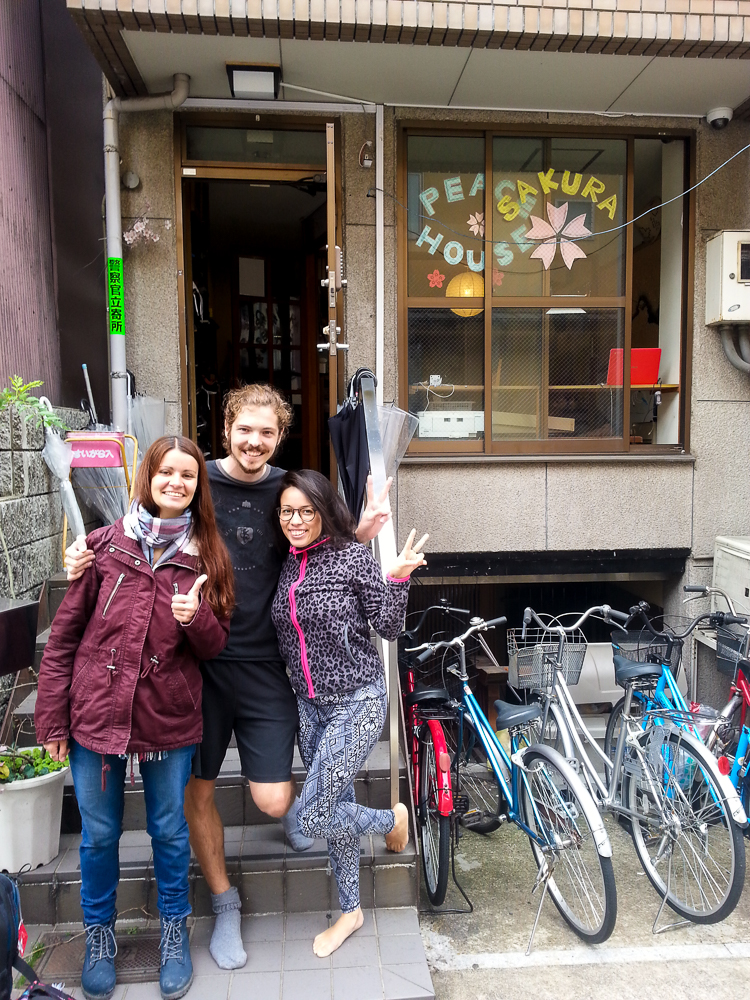
- The bunk or bed is your private space. When travelers don’t want to socialize, perhaps after a long stressful day, they hang out in their bunk. Hostel dorms may or may n0t have curtains on the bunks, but just because you can see someone beside you doesn’t mean they are looking to socialize.
- Common rooms are for socializing, if you find someone on their own in the lounge, by the bar or at the table, don’t be afraid to say hello. Ask if you can join them and introduce yourself. Don’t be shy!
- Showers and Mirrors: Hostels have shared bathrooms which can vary wildly when it comes to showers. Take short showers, be quick and mindful of others, especially in the morning. Some hostels have ‘open’ shower rooms like a sports center with just shower heads and curtains separating them, other have private shower stalls. The shower to bed ratio can be a real challenge, especially for women only dorms or hostels. This also applies to hair dryers, usually placed by the mirrors.
- Always clean up after yourself. Hostels aren’t hotels, they are cheap and don’t have the staff on hand to be cleaning up all the time. Travelers should be responsible for their own mess and clean up everything immediately after use in the kitchen and common rooms. If there is a fully stocked kitchen, clean all the pans right after cooking and before you eat so others can use them too.
- It’s quiet time after midnight and in the morning. A good night sleep is priceless, the last thing anyone wants is to overhear people talking loudly at 3 am when they have to wake up at 6 am. It’s one of those rules that feels unfair, but you’ll have to take the party elsewhere after midnight. Before 11 am, just be mindful of noise in the dorms because guests may be sleeping in or really hungover.
There are a lot of other little details you’ll pick up as your travel, but these 5 are the big ones to keep in mind for all hostels.
Pro Hostel Tips
As a cheap – backpacker – budget traveler, I always stay in hostels. The more I review hostels, the better I’ve become at picking out the great from the bad. Now when I visit a new hostel, I ask for a tour and mention I’ll be reviewing the hostel online (if it’s good) so I usually get a thorough wlakthrough by the staff. Here are my basic tips for finding great hostels.
- Follow the Hostel you intend to stay at on Facebook or Instagram. If they are very active in showing off events and their rooms, you’ll know it’ll spark joy.
- Look for 1 star reviews – the people who really had a terrible experience and determine if their complaints were just being fussy or of real concern.
- Ask Facebook Travel Groups – I’ve been joining more and more groups, the thousands of members always have something to say about hostel, tours and other recommendations.
A great hostel starts with the owners and staff who put their time and attentions into making the hostel welcoming and fun. You’ll find some hostels go above and beyond for their guests, hosting events, providing expert advice and helping you book tours, or sort out travel arrangements. These hostels have staff that are pros, love to travel themselves and know how to make your experience special.
A lot of once great hostels simply degrade to being good or half-decent because the owners stop giving them the attention they deserve to be extraordinary. Many of the oldest, most popular hostels have thousands of reviews on hostelworld, but haven’t put any money into updating the hostel, the beds, basic renovations or have ceased to put on special events.
Don’t be afraid of new hostels, they may have few reviews but have the passion to really work for your experience. This also applies to new Airbnbs, where the power of a good review goes a long way.
The bad are hostels that are completely neglected – staff that clearly don’t give two shits, or owners that aren’t present. I’ve visited hostels where the owner hadn’t personally visited in years to inspect the property, letting it degrade to a terrible state. These hostels tend to be cheaper but not always. These hostels do not spark joy.
5 Hostel Donts
These are my personal pet peeves when it comes to hostels – things I find annoying or rude, disruptive – but not in the silicon valley kind of way, just straight up frustrating at times. Chances are you aren’t even aware of some of these big Hostel DONTS.
The Plastic Bag Backpacker.
It’s the traveler that organizes their backpack by stuffing items in dozens of plastic bags. At 6:00 am, all you can hear is the rustling sound of a **hundreds** of bags as they pack to leave. Everyone hates this person. Pick up a mesh bag for laundry, or packsacks on Amazon.
The Room Party
It’s the traveler that isn’t finished with the late night festivities and brings the party back to the hostel dorm room… drunken singing, talking about how dope the club was **really loudly**, or hooking up with another traveler in the dorm room while everyone else is sleeping. Trust me, no one wants to hear that and everyone will know in the morning.
The Bed Foodie
It’s hard to kick some habits on the road, one common thing people do is eat in bed. Snacks are awesome, but slurping noodles in bed is not cool. Crumbs left in bed attract bugs and can be hard for staff to clean up. A lot of hostels don’t prohibit taking food back to the dorm room, but they do encourage eating in the common room. Just eat at a table in the common room.
The “Can’t find my headphones”
The person that listens to movies, music and videos at full blast without any headphones ranks as one of the most annoying. Netflix on phones has made this problem way worse in recent years.
Headphones and Earbuds break, I get that, I sympathize… But a back-up pair is like $2, buy 2 or 3 sets. Not everyone wants to listen to hipster music as 11 pm in the dorm…
The Dish Monster
Hostels that supply travelers with free use of a kitchen will have the dirty dishes problem. There are never enough plates and cups for all the guests to eat at the same time. Likewise, there are usually only a few pots. Monopolizing all the cooking equipment or not cleaning up right away can be a huge annoyance. Cook & Clean, it’s not complicated.
Hostels in China
China is a different beast. Most travelers in China are young Chinese students, with fewer international travelers. So rather than a room filled with young 20-somethings like in Thailand or Bali, you’ll find yourself surrounded by people who have never traveled outside of Mainland China.
Assume the hostel staff and owners also have very limited English speaking skill and experience with hostels outside of China.
This lack of exposure makes hostels in China really different. Some copy the capsule style of Japan and Korea, while others try and appeal to only internationals by making their hostels a theme – like the Belgian Hostel in Xi’An or Hostel 365 in Beijing, themed after the UK.
The other guests in China do not follow the usual hostel etiquette – making socializing and noise levels a real challenge. For more details I wrote a Master List of the Best Hostels in China, with more tips for your stay specific for travel through China.
Hostels in Japan
I believe Japan sets the gold standard for Hostel Etiquette. The Japanese people are raised to be very conscientious of others, no doubt because of the dense population but also because of the culture of respect. They also have the cleanest hostels, on average, of any country I’ve visited. Having been the person cleaning the toilets and showers at hostels in Japan on my workaway experiences, you can trust me when I say they have the highest standards.
There is a Japanese proverb that roughly translates to “The Nail that Sticks Out Gets Hammered Down” (出る釘は打たれる) which makes conformity ingrained in Japanese society. While this has large consequences for self-expression in Japan, it does contribute to one of the most courteous hostel experiences in the world. But here are a few quirks of Hostels in Japan.
Special Events – Traditional Matcha Tea
Hostels in Japan as the most expensive in Asia, even above Hong Kong. A basic bunk can bottom out a $12 USD in some cities and top out at over $50 USD!
But what the Japanese hostels do best is throw in some unique cultural events. Things like making Gyoza parties, tempura hot pots, learning traditional tea ceremonies or even Chyodou (Japanese calligraphy art).
Staying at a hostel in the $25 dollar range which is pretty common in big cities like Tokyo and Osaka will probably be your best bet for catching some of these great events. At Miyajima Backpackers in Hiroshima, we learned how to make and hold a traditional matcha ceremony and later enjoyed a great musical performance by artists from Okinawa who were passing through!
A popular hostel can even attract locals from within the city, and expats, for such events giving guests a new opportunity to meet and greet.
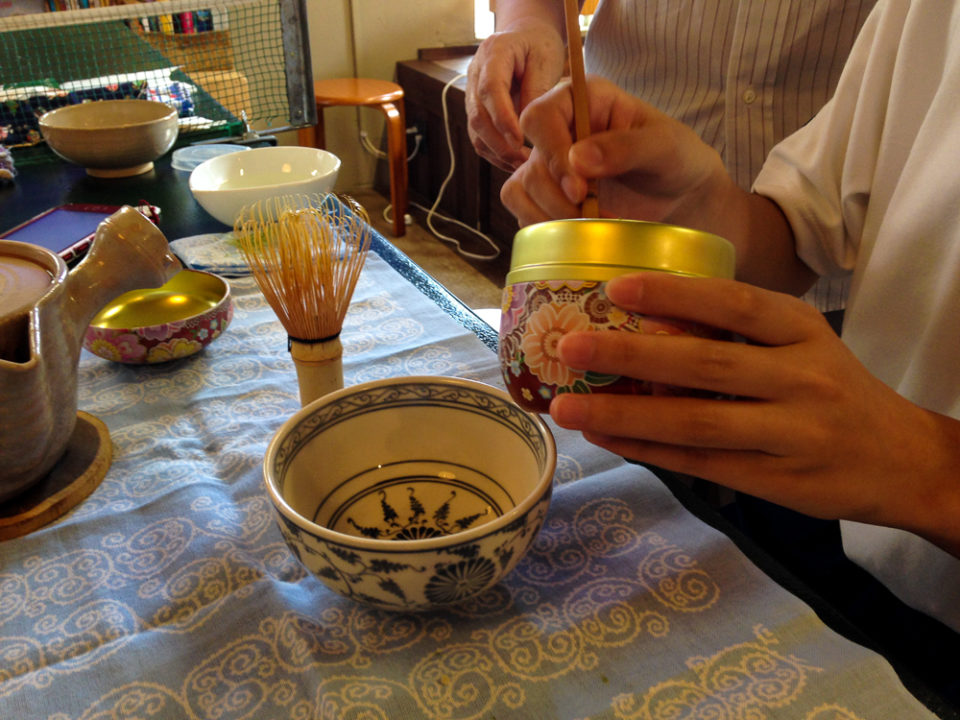
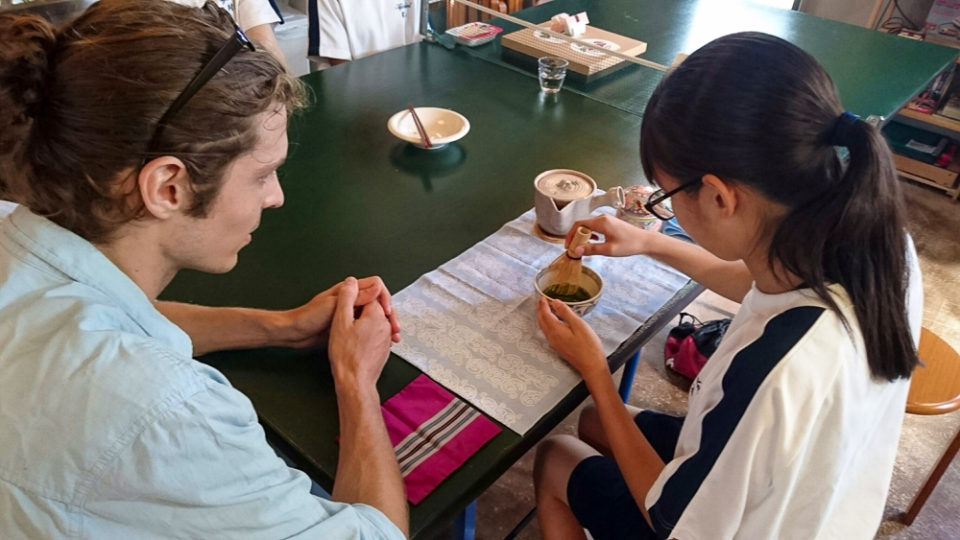
Make Your Own Bed
Hostels in Japan may give you your bed sheets and a pillow case when you check in. They will hand you the folded sheets or already have them on your bed. You have to make the bed yourself. The staff wash and change the futon (mattress) sleeve. This annoys some western visitors’, except Germans who oddly enough have a similar custom. Take the 5 minutes to make your bed properly, yes it’s annoying but think of it this way… You have been guaranteed fresh linens, bug free.
Personally, I feel comforted seeing my bed linens folded for me like in the photo below.
When you check-out, strip the bed and pillow of the sheets and pillow case, bring them downstairs or to the hamper in the dorm. Most foreigners forget this part, but it’s customary in Japan. It also doubles as a way to let them know you have indeed left when there is a self-check-out.
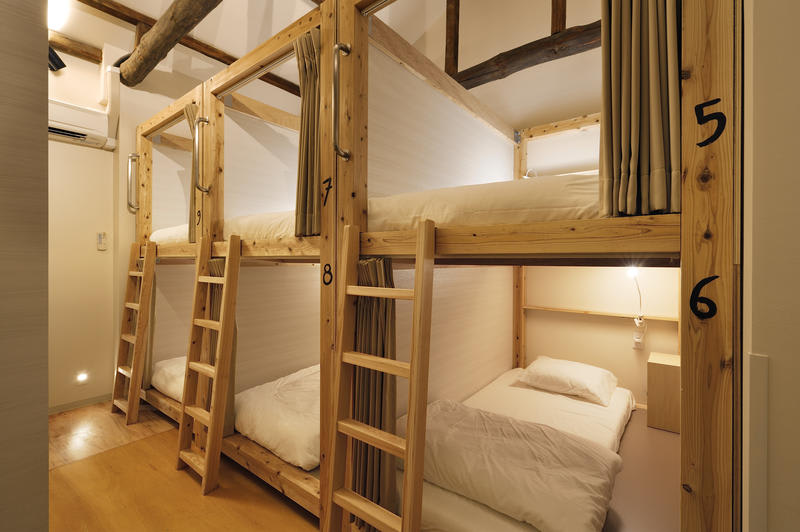
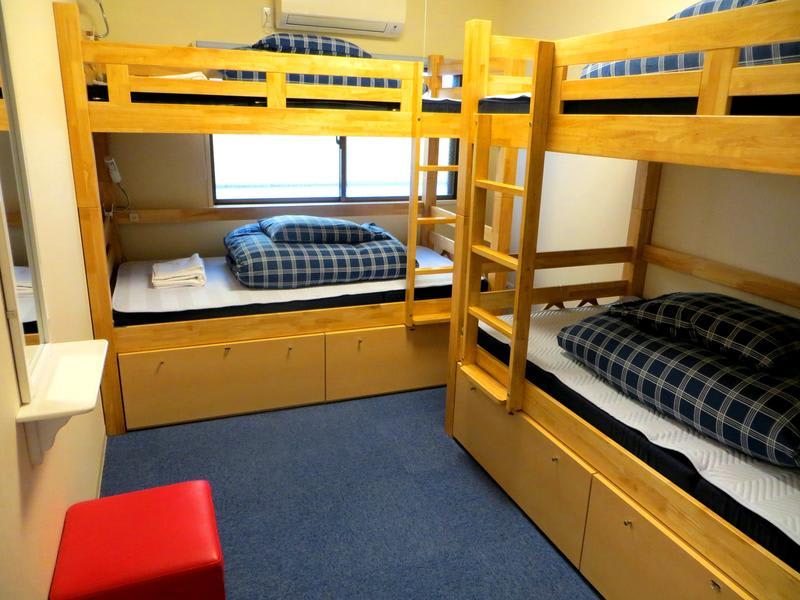
Sharing Food in the Common Room
It’s a very Japanese thing to make a trip to the local Conbini and buy a lot of snacks to share. First time visitors to Japan usually enjoy a good trip to the 7-11 because there are so many products and snacks you’ll only find in Japan (or an Asian grocery store that imports Japanese snacks). This was a really fun part of the common rooms in Japan, people bring back all kinds of foods and openly share with everyone around. The custom is to provide something as well, if each person brings an item or two (like a potluck) then you can try a dozen different snacks all at once!
Hostels in Southeast Asia
Southeast Asia is backpacker trail 101, the learning ground for first time travelers in their twenties to experience the world. Hostels are so cheap, from $1 to $5 per night!
The Southeast Asia trail includes: Thailand, Cambodia, Laos, Vietnam, Malaysia, Indonesia (AKA Bali) and the Philippines. Most of these countries are connected by land, or a quick and cheap flight and are all cheap to visit.
Backpacking southeast asia is a rite of passage in a way, but has transformed over the decades, earning a bit of a seedy reputation as these economies have grown but young people are still seeking to travel on the smallest, sometimes crazy low budgets. You may have heard of full moon or jungle parties in Thailand and the under-reported deaths.
When it comes to hostels, you’ll find all kinds. From low $1 per night bunks to $15 to $25 per night mini resorts with a swimming pool, bars with free drinks, games, free breakfast and even communal dinners. Southeast Asia sets the bar for what you can get in a hostel for rock-bottom prices. The social vibes are awesome and the tourists are even wilder, especially in places like Hanoi’s old quarter or Khao san rd in Bangkok!
Walking Tours
Many hostels in Vietnam, Malaysia and Thailand offer free walking tours of the city to the guests. These are really helpful! It can be an overwhelming experience to drop into a foreign country like Vietnam, with military patrols, different city layouts and architecture and little English proficiency. The walking tour is a chance to familiarize yourself with the area, the shops and people, and also to chat with other travelers in the group.
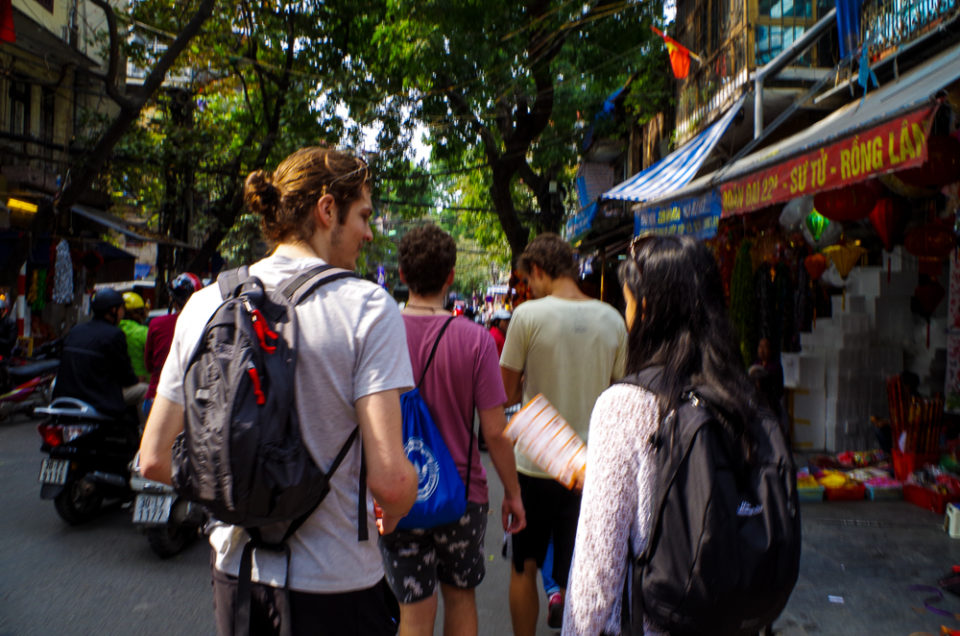
Beer Nights
The best hostels have beer nights, sometimes every night. Beer is cheap in southeast asia, sometimes as low as 12 cents per glass with buy 2 get 1 free in Hoi An, Vietnam. At most, a beer is $1 to $1.50 in Thailand. So hostels give it away for free, to get people socializing and having a great time!
Free Breakfast
A basic breakfast of eggs, bread, coffee or tea with some fresh vegetables like cucumber or sliced tomatoes or fruit like mango, banana or even papaya. Wake up, go downstairs and get your free meal, just don’t get out of bed to late or you’ll miss it. The same applies to free dinners, be there on time to eat or you’ll miss out.
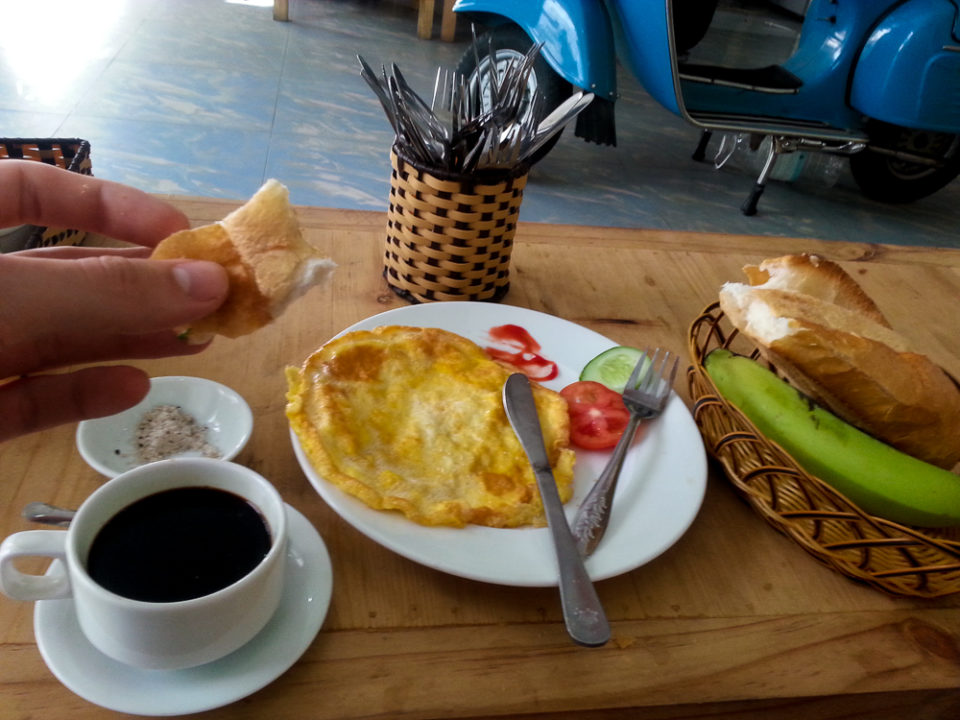
Hostel Essentials
Etiquette will only go so far. Staying at a hostel is still sharing a room with anywhere from 3 to 20+ other people. Day after day, it can become a bit annoying and the desire for privacy and a good night sleep without having to hear other snoring increases. You may start picturing yourself at a nice private hotel with your own shower and ensuite… I get it, I’ve been there myself.
Having the right gear for your hostel will go a long way towards making each night enjoyable. So here is my quick list of hostel essentials.
- Ear Plugs
- Eye Mask
- Padlock
- Headlamp – hands free
- Toiletry Bag with hook
- Micro-fiber quick drying towel
- Shampoo and Conditioner Silicon Tubes
- Water Purifier / Filter
- Waterproof Soap Case
- Shower Flip Flops
- Universal adapter with two plug slots
- Power Bank
- Pack Sacks & Laundry Mesh Bag
- Silk Sleeping Bag
- 3x Headphones
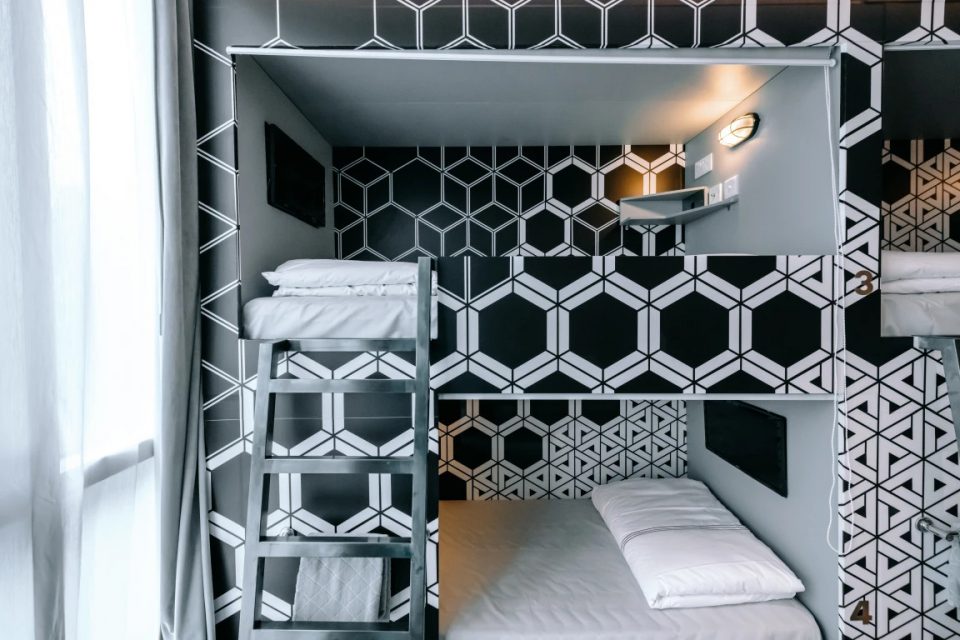
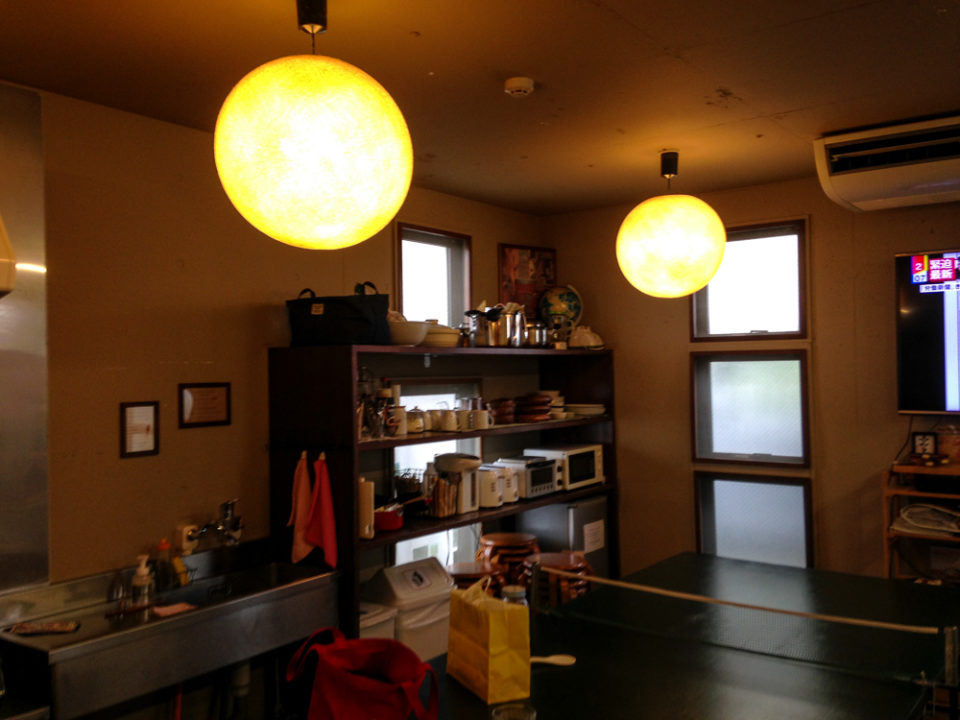
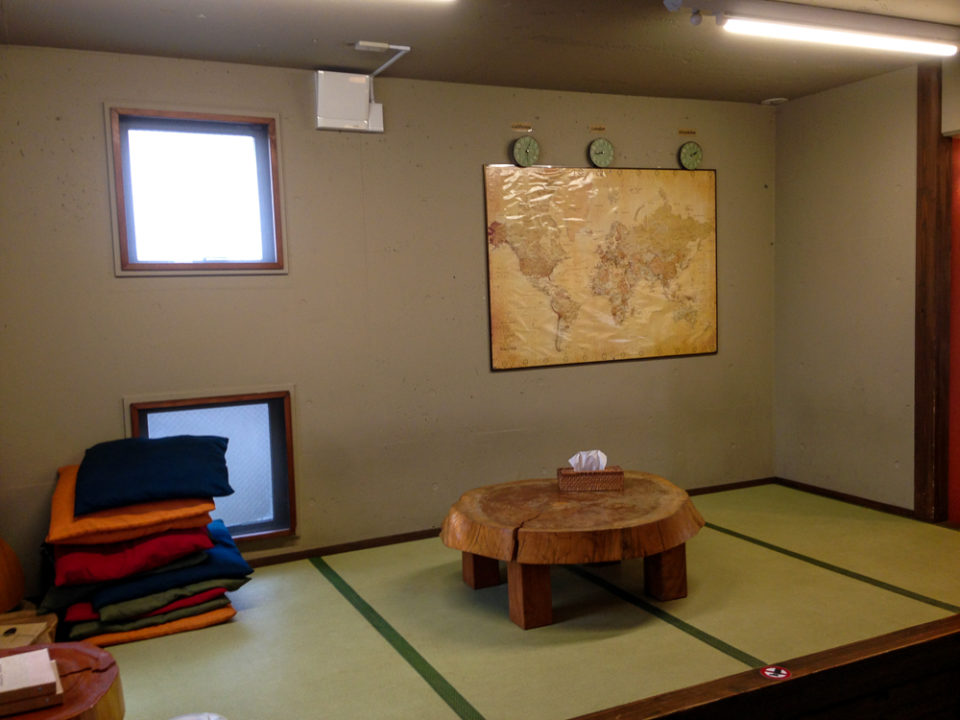
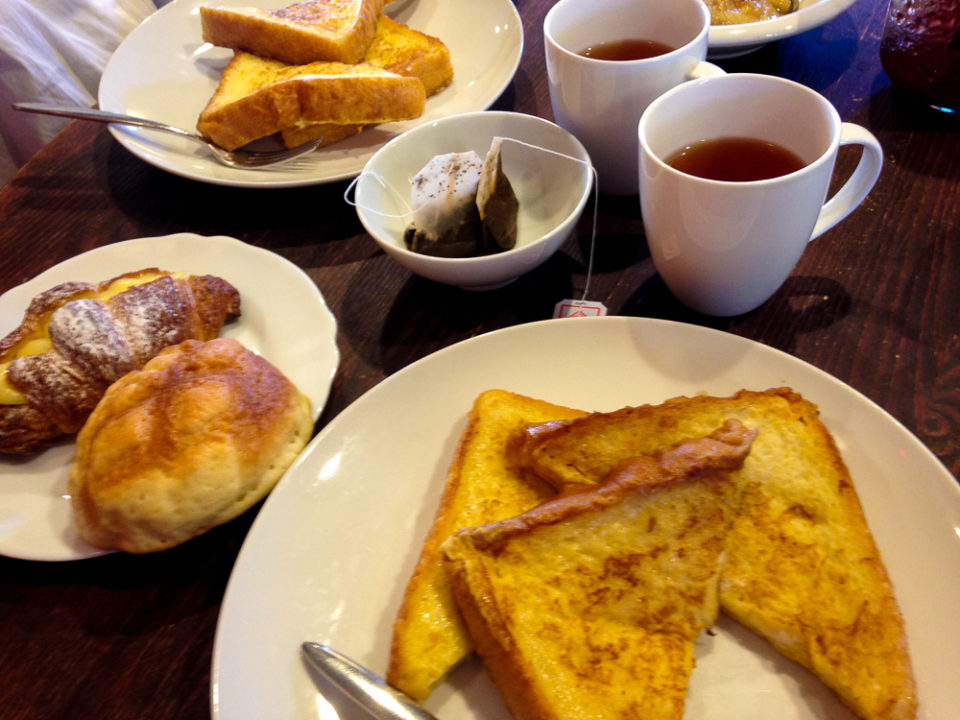
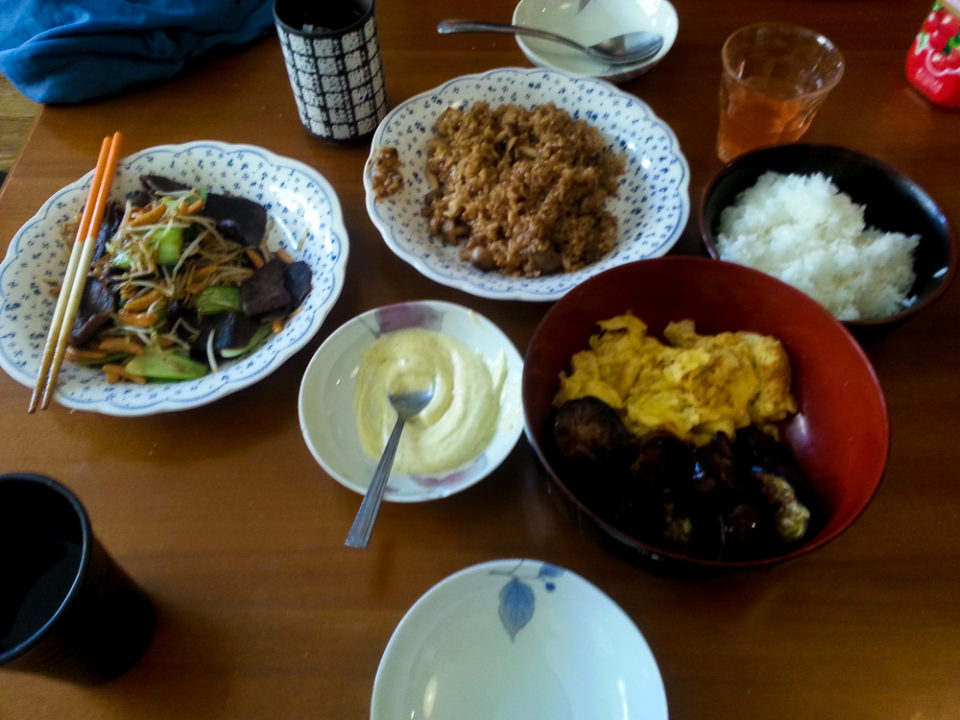


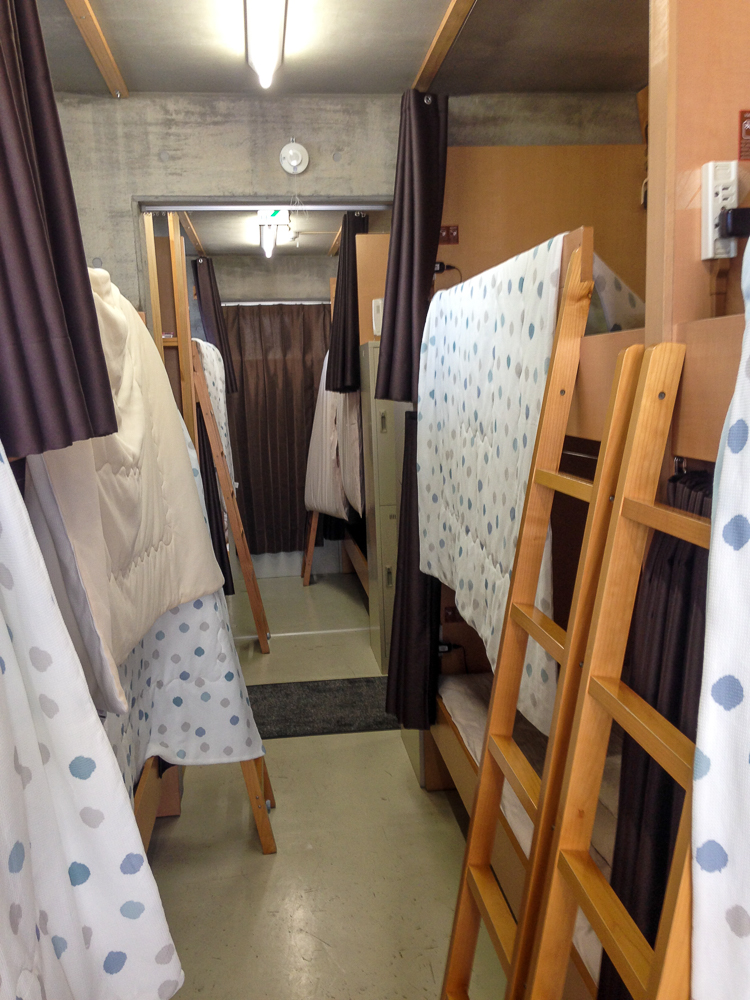
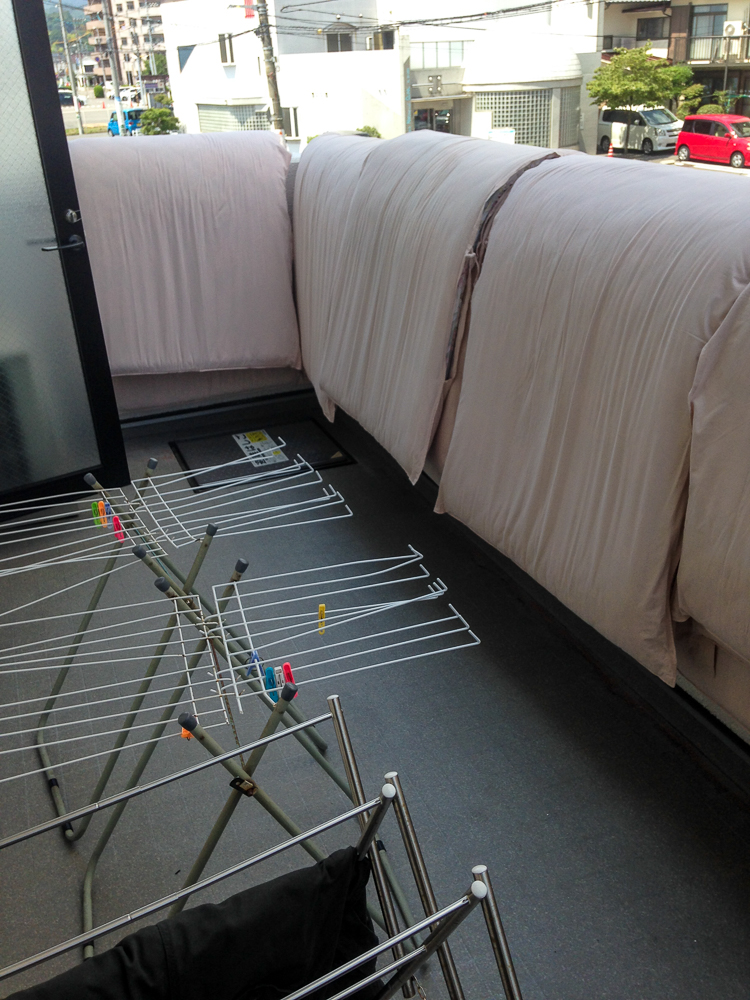

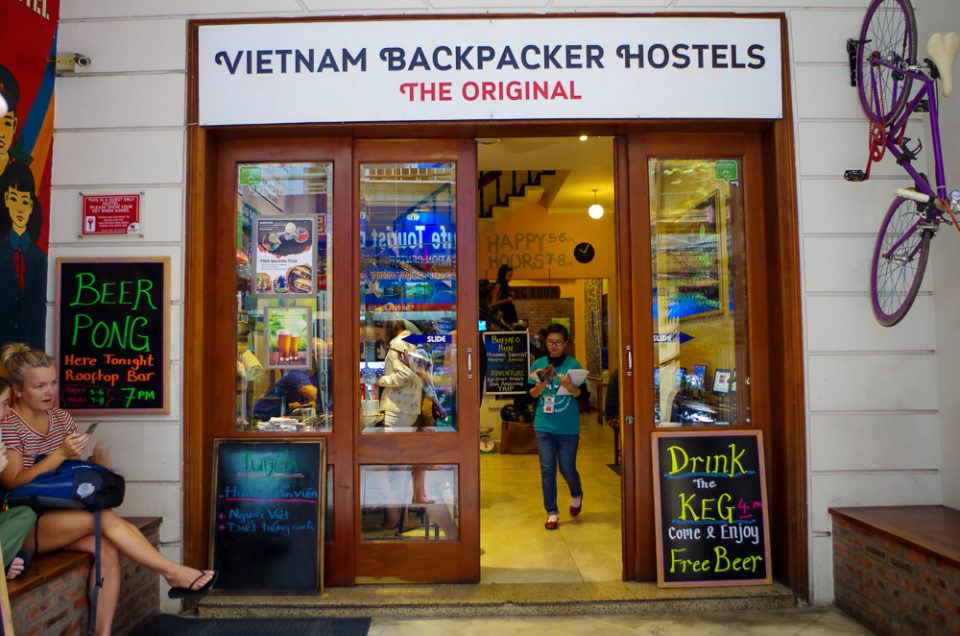
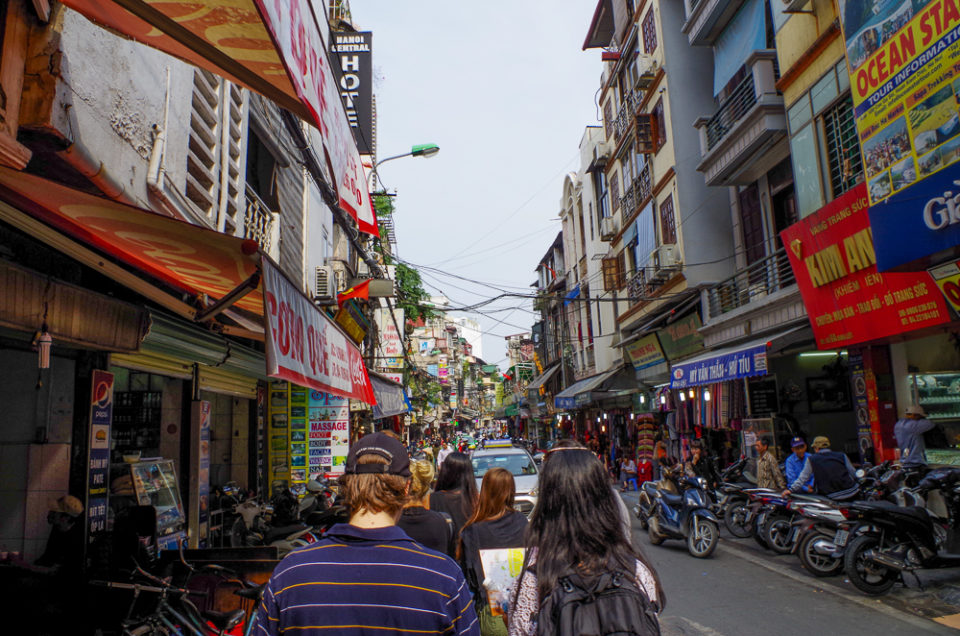
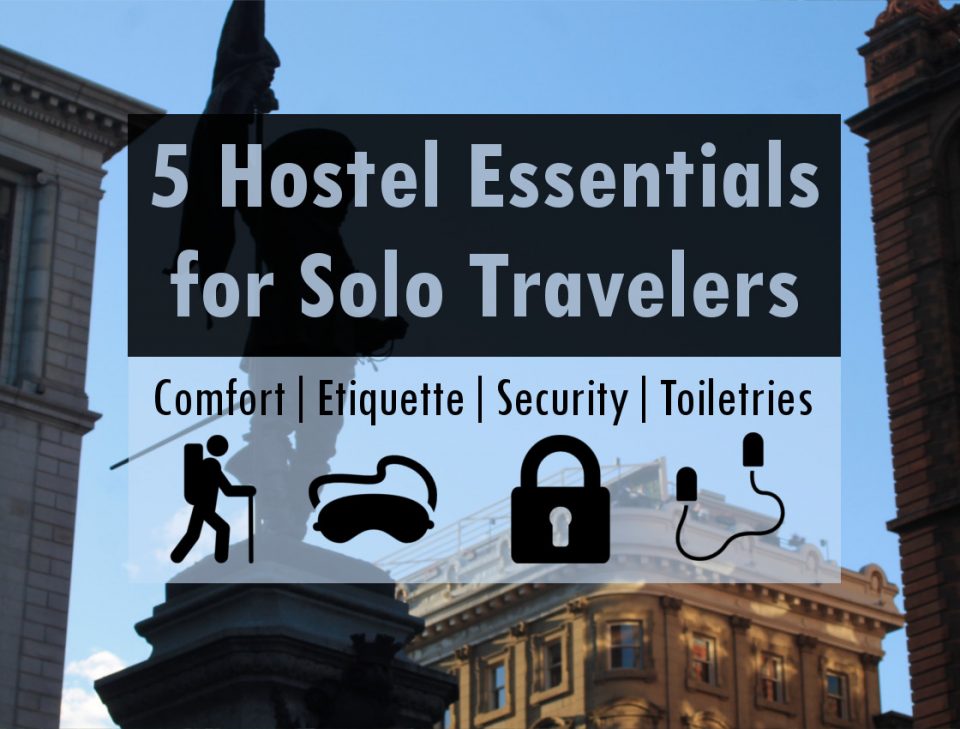



0 Comments